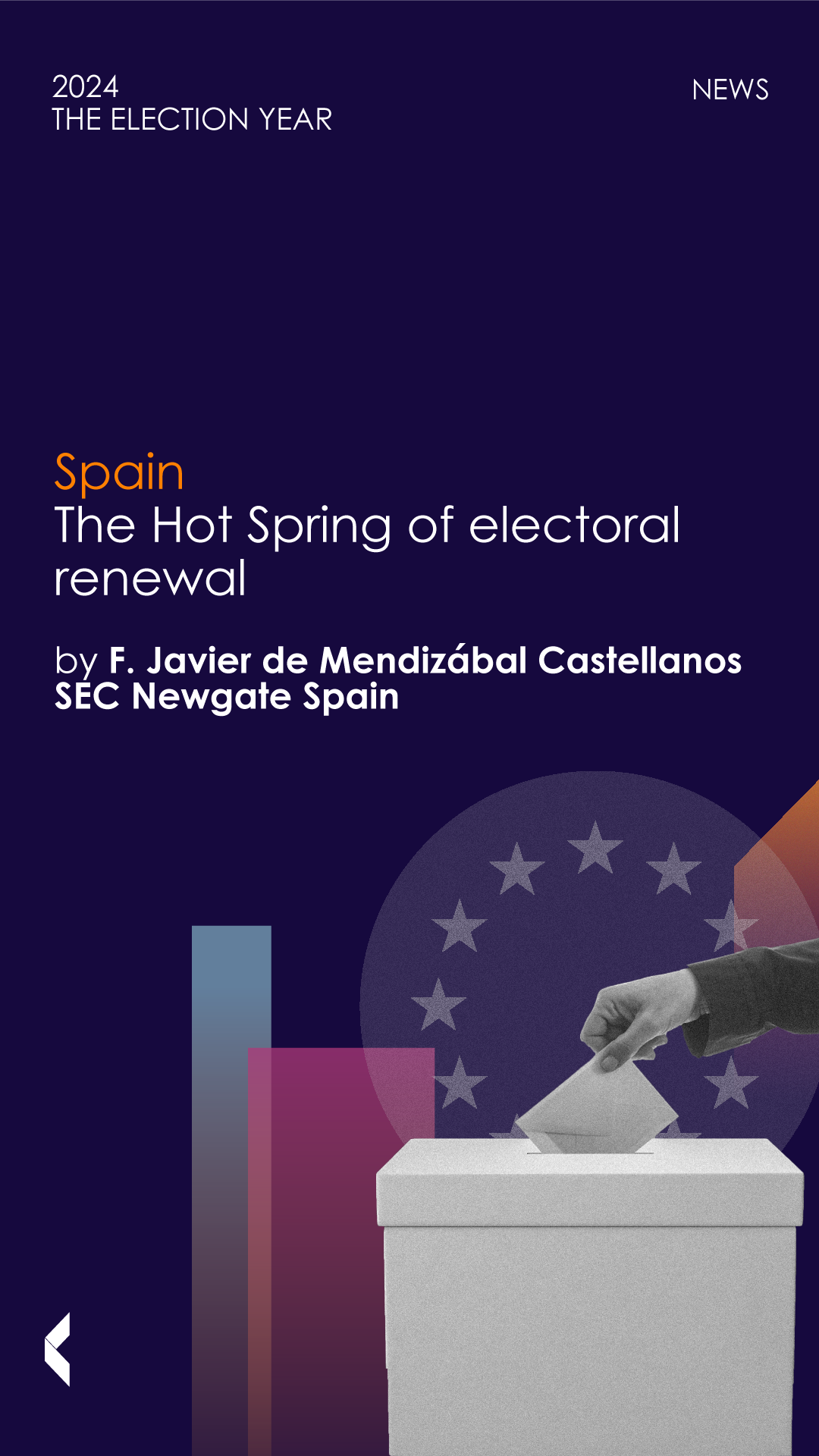About the Author
The situation could be described as dire for the current Government; led by the Spanish Socialist Party (PSOE) but supported by a varied series of minor parties. Among these are the communists (now divided into two parties, Sumar and Podemos) and those – declared by themselves – enemies of the unity of the nation. These include Junts pel Cat (right-wing Catalan separatists), ERC (left-wing Catalan separatists), PNV (right-wing Basque separatists), and Bildu (heirs of the terrorist organisation ETA, radical left-wing Basque separatists).
Needless to say that, with such support, the current Government is extremely weak, as demonstrated daily in the Congress of Deputies. In summary, this conglomerate “supporting” the PSOE Government totals 178 deputies in total, compared to 172 from the opposition (Popular Party, centre-right, and VOX, right to extreme-right).
Consequently, the Government will be forced to pass an Amnesty Law, overwhelmingly rejected by the citizens, which will mark the entire legislature. A law demanded by Catalan minorities, some awaiting trial for sedition, terrorism, misappropriation of public funds, etc., and living in “exile” outside of Spain in Waterloo (Belgium) and Switzerland.
On the other hand, corruption dominates the agenda in Spain. Unfortunately, there are few media outlets these days featuring headlines other than the rise of corruption in Spain: from misappropriation of EU funds in the acquisition of material to fight the pandemic, to company aid linked to the Venezuelan narco-dictatorship that directly implicate the socialist government. Individuals involved in the corruption allegations include several ministers, and even the President’s own spouse.
This is situation, very serious, given that at this moment, the opposition controls thirteen of the country’s seventeen autonomous communities and most of the major city mayoralties. Social fracture is evident; Spain is divided. The recent regional elections in Galicia in February 2024 have once again demonstrated the strength of the Popular Party (absolute majority of the centre-right), further weakening the Central Government.
Regional elections will be held in the Basque Country in April 2024, which, despite being a region with fewer inhabitants, somehow influences the entire national political landscape as its regional parties are key to maintaining the Spanish Government as a whole. We will see what happens then.
Additionally, on March 13th 2024, the Regional Government of Catalonia announced the anticipation of the Catalan elections, adding another factor of instability and uncertainty at the national level, given that the independence parties (ERC and Junts) are crucial for the viability of Pedro Sánchez’s Government (PSOE) in Madrid. These elections have been called for May, ahead of the European elections scheduled for 6-9 June 2024.
The uncertainty is of such magnitude that on the same day on March 13th, the National Government announced the impossibility of processing the 2024 Budget Law due to the inability to reach agreements – in this pre-election atmosphere – with the Basque and Catalan minority groups supporting the Sánchez Government. Consequently, they will have to extend the 2023 budgets.
A hot spring is expected in Spain. The next few months are expected to bring a number of unprecedented political developments, with the Basque Country elections in April, the Catalan elections in May, and the European elections in June.
In summary: instability, uncertainty, soaring public spending, enormous public debt, and institutions being brought into question (including the third judiciary power). There is an atmosphere of tension and confrontation, strong opposition from the primary sector (agricultural livestock) against the EU’s policies and the Government’s environmentalists, and overall legal insecurity. A sense of cycles changing.
What does the Governing majority expect from elections?
In basic terms, the Governing majority is spending money on groups which, they are assuming, can support their work. These include “social spending,” i.e., pensions, aid to young people, subsidies, etc.
Not much else, given the parliamentary weakness. At the same time, they must appease their minority partners in Catalonia and the Basque Country with all kinds of concessions, debt write-offs (to be assumed by the State), and transfers in the management of ports, airports, railway network. In any case, their electoral success is far from being possible, as we will see later on.
What is the opposition doing?
The Popular Party (PP) hopes to achieve a broad victory in June and become the majority party.
Vox (extreme right) expects to remain as the third political force but with no more than 10% of the votes. What both are doing is denouncing concessions to independentist nationalism daily (amnesty, privileges, etc.) as well as making corruption allegations against the Government.
In the atmosphere that has been created, there isn’t much time either to present other alternatives, or at least, they don’t have much echo in the media. It is true that in all regions where they govern (PP alone or PP with VOX), with Madrid at the forefront, things are much better with regards to social, political, and economic terms. This is something they exploit as much as they can.
What is the expected impact of EU elections in Spain?
The latest polls conducted agree that the result will be a great victory for the centre-right (PP) and right (VOX), further weakening the central Government.
If this happens as expected (as it is likely to be), a Government crisis with possible immediate consequences in the form of early elections in Spain is not unlikely.
Regarding the whole of the European Parliament, it seems clear that from Spain, the majority of the centre-right and right will be strengthened within it.
The Spanish government – in a nutshell
Monarch: King Felipe VI
President of the Government of Spain: Pedro Sánchez (PSOE) Socialist
Governing coalition: SUMAR Yolanda Díaz, Vice-President (former Communist Party) and the separatist parties of Catalonia and the Basque Country (among others minor supports)
Opposition: party 1 Popular Party, Alberto Nuñez-Feijóo (centre-right) party 2 VOX, Santiago Abascal (radical right)
To know more:

